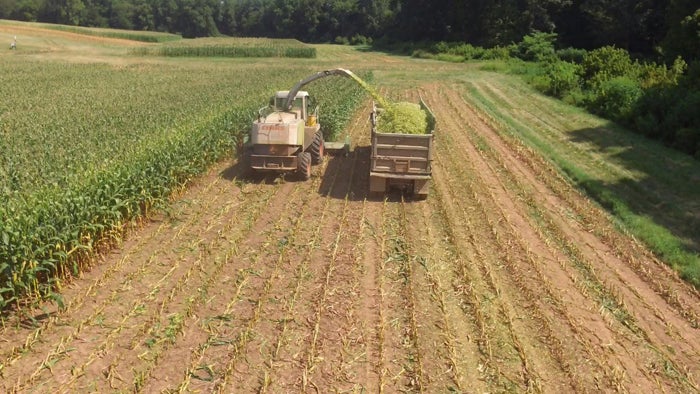Amy-Lynn Albertson: Protecting Rowan County farmland
Published 12:00 am Sunday, December 19, 2021

- The Voluntary Agricultural District program is a way to help protect farmland. Submitted photo
Today, less than 1% of the U.S. population farms and nearly 20% of the food we eat is imported from other countries.
The world population is expected to reach 9.7 billion people in 2050. We will need to feed all these people on the same amount or less land as today. Food security is just one of many reasons that farmland preservation is essential. Since its creation in the late 1980s the Voluntary Agricultural District program has offered counties in North Carolina a way to protect, enhance and advocate for their agricultural land and landowners.
With 90 counties now part of the program in North Carolina, it’s clear that local governments across the state have recognized the value of protecting farmland. However, it is vital that citizens in those districts remain active and engaged with their VAD for the program to be successful.
Rowan County is blessed with a vibrant, productive agricultural economy. Cash receipts from marketing, including crops, livestock and government payments, were over $80 million in 2017. We have 925 farms in our county. In 1990, Rowan County was the first county in North Carolina to adopt an ordinance to help protect farms by creating the Voluntary Agriculture Districts. In 2021 we have 300 farms and almost 12,000 acres enrolled in this program.
The voluntary program’s benefits include recognition and public education about agriculture through signage and increased protection from nuisance suits, including noise, odor, dust or slow-moving farm vehicles. A waiver of water and sewer assessments as well as public hearings held by the Agricultural Advisory board are required for proposed land condemnation and increased eligibility for funding. To be eligible to enroll in the Voluntary Agriculture District, you need to own a farm or forestland that qualifies as a bonafide farm. The land must be a minimum of five acres, and you must do one of these four things; 1) File a Schedule F with your federal income taxes 2) Qualify for present use value property tax deferment 3) Qualify for sale tax exemption under the N.C. Department of Revenue for qualified farmers 4) Have a forest management plan.
Also, the land must be managed with the Natural Resource Conservation Service defined erosion control practices used to treat highly erodible land.
A Voluntary Agricultural District member is subject to a non-binding conservation agreement between Rowan County and the landowner that prohibits non-farm use or development of the land for at least 10 years, except for creating more than three lots that meet the applicable county zoning and subdivision regulations. You may revoke the agreement any time with a 30-day written notice to the Agricultural Advisory Board.
This program is voluntary for anyone who wants to keep land in agriculture. The Rowan County Agricultural Advisory Board comprises five appointed board members by the Rowan County commissioners. The Voluntary Agriculture District is an essential piece of the Rowan Working Ag Lands Plan we are working on.
If you would like more information about the Voluntary Agricultural Districts or the Rowan Working Ag Lands Plan, call the Extension Office at 704-216-8970
Again, I urge you to participate in our survey to make sure your opinions and thoughts on agriculture in Rowan County are heard. The survey link is www.go.ncsu.edu/rowanworkingaglands.
Amy-Lynn Albertson is director of Rowan County Center of the NC Cooperative Extension.




